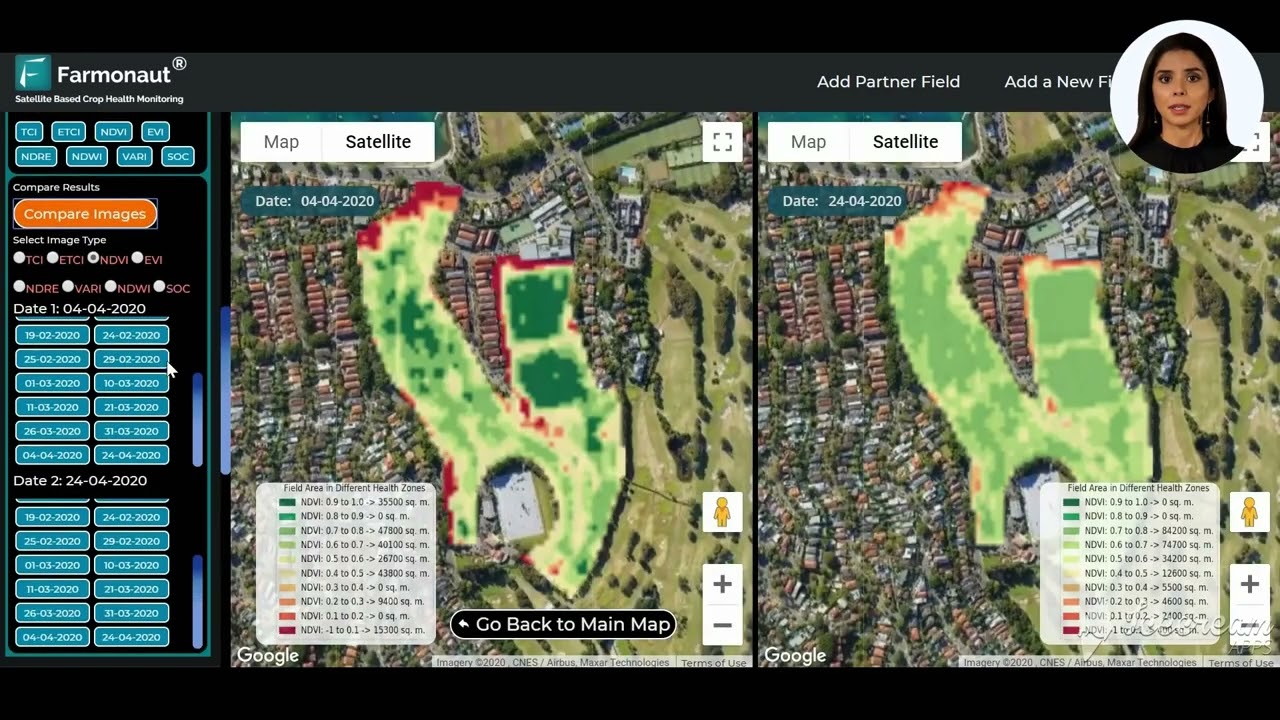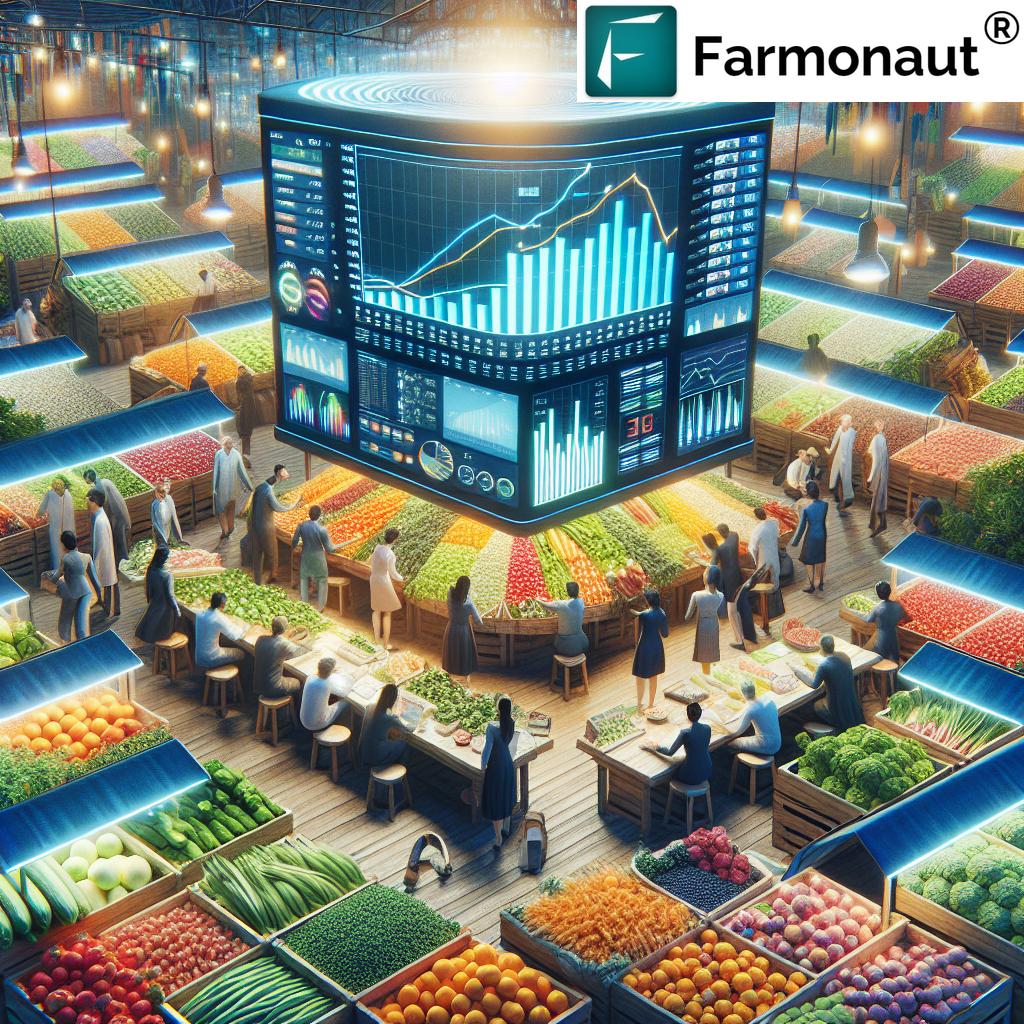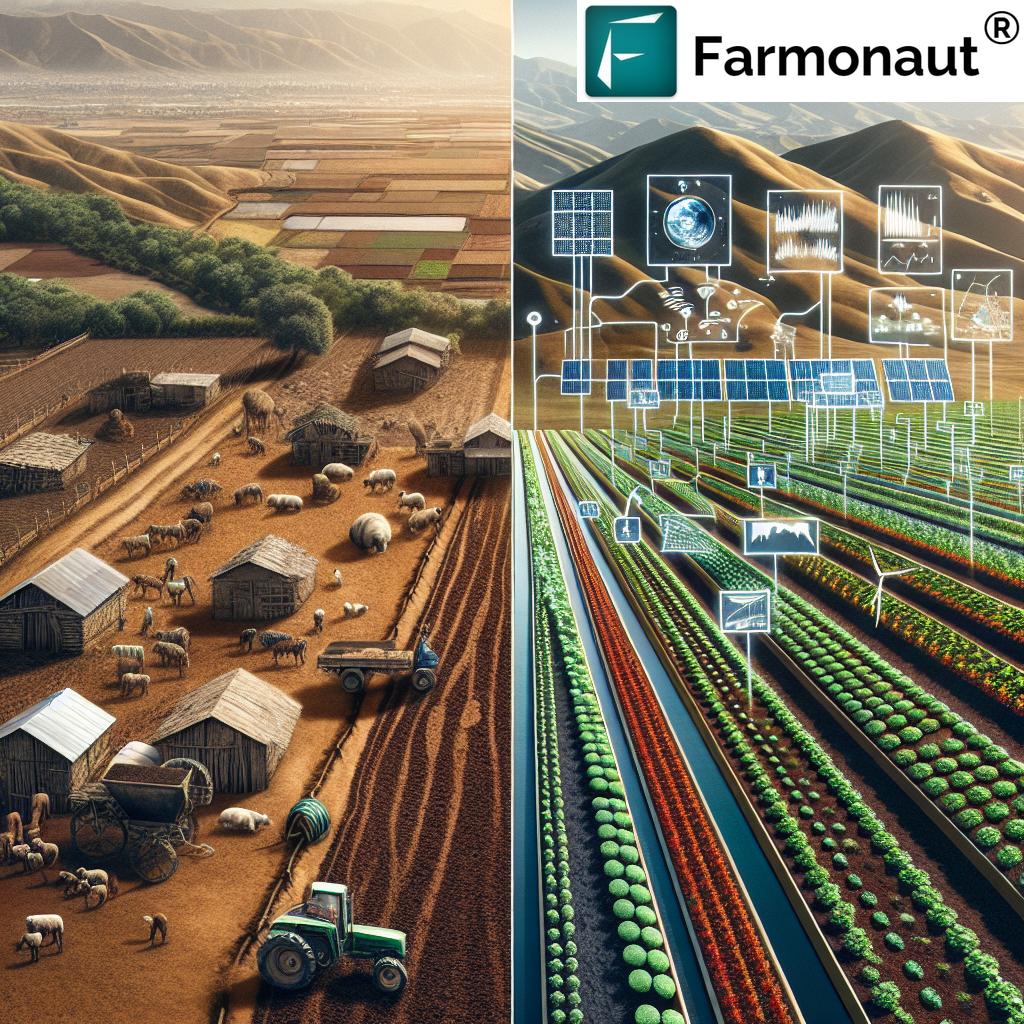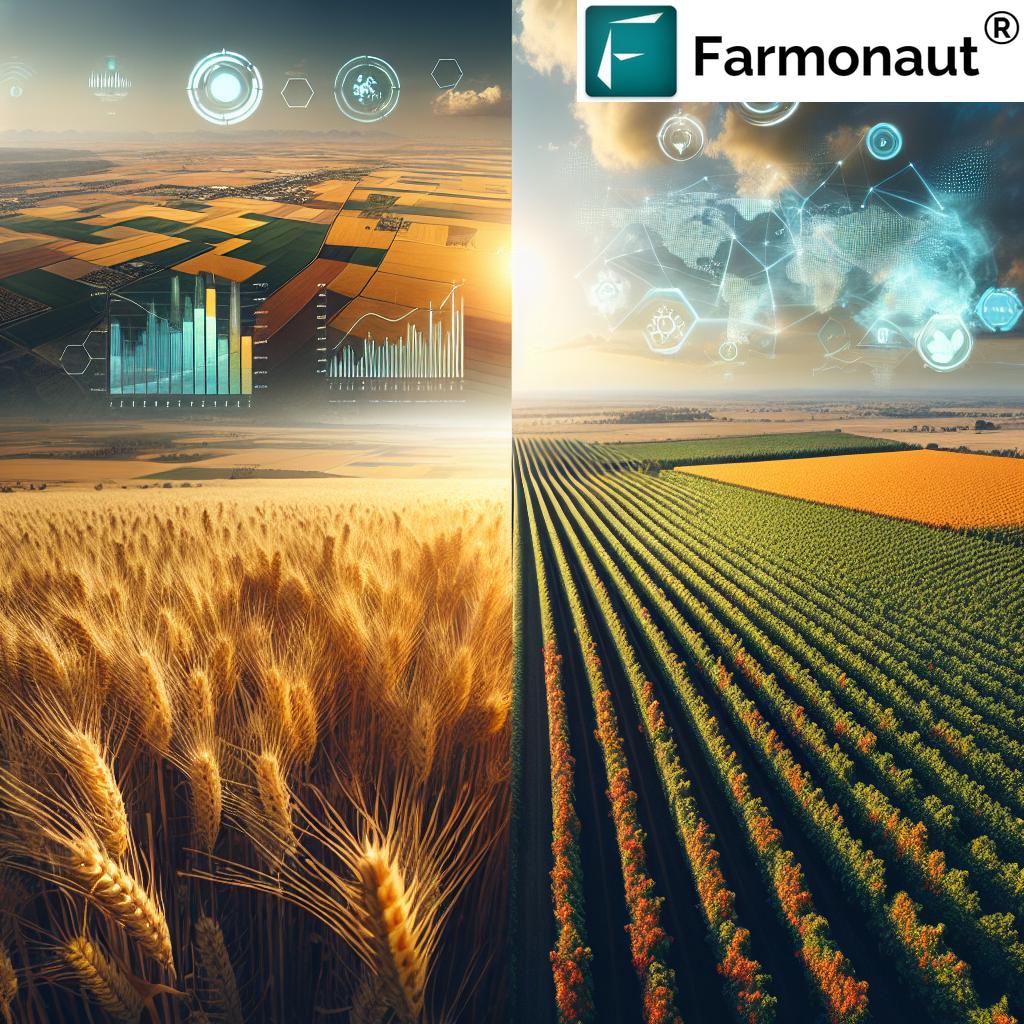RCEP’s Impact: Boosting ASEAN Agricultural Trade and Smart Farming Innovations in Southeast Asia
“RCEP covers 30% of global GDP and impacts over 2.2 billion people in the Asia-Pacific region.”
As we delve into the transformative impact of the Regional Comprehensive Economic Partnership (RCEP) on Southeast Asian agriculture, it’s crucial to understand how this groundbreaking agreement is reshaping the landscape of agricultural trade agreements and market opportunities. At Farmonaut, we’re keenly observing these developments, recognizing their potential to revolutionize the agtech sector and drive smart farming innovations across the region.
The RCEP: A Catalyst for Agricultural Growth
The RCEP, which came into force on January 1, 2022, marks a significant milestone in regional economic cooperation. Comprising 15 countries, including the ten ASEAN nations along with China, Japan, South Korea, Australia, and New Zealand, this partnership is designed to enhance trade and investment within the Asia-Pacific region.
We’ve observed a notable increase in trade among RCEP countries since its implementation:
- China recorded a 7.5% rise in trade with RCEP nations in 2022
- This trend continued into 2023, with a 5.3% increase compared to 2021
- The first ten months of 2024 saw a further 4.3% rise
These figures underscore the RCEP’s role in fostering economic growth and market prosperity among its member states.
ASEAN Agricultural Cooperation: A New Era
The RCEP has ushered in a new era of ASEAN agricultural cooperation, particularly benefiting tropical fruit exports and sustainable agriculture practices. Countries like Thailand have experienced increased market access for their prized agricultural products, such as durian and mango.
“Thailand’s durian exports increased by 45% in 2020, with RCEP expected to further boost tropical fruit trade.”
This surge in agricultural trade is not just about numbers; it’s about creating opportunities for farmers, enhancing food security, and promoting sustainable agricultural practices across the region.
Smart Farming Innovations: The Farmonaut Perspective
As the RCEP opens new doors for agricultural trade, it also paves the way for the adoption of smart farming technologies. At Farmonaut, we’re at the forefront of this revolution, offering advanced satellite-based farm management solutions that align perfectly with the RCEP’s vision for a more integrated and technologically advanced agricultural sector.
Our platform provides:
- Real-time crop health monitoring
- AI-based advisory systems
- Blockchain-based traceability
- Resource management tools
These technologies are crucial in enhancing agricultural supply chain management across the RCEP region, enabling farmers and agribusinesses to meet the increasing demand for high-quality, sustainably produced agricultural products.
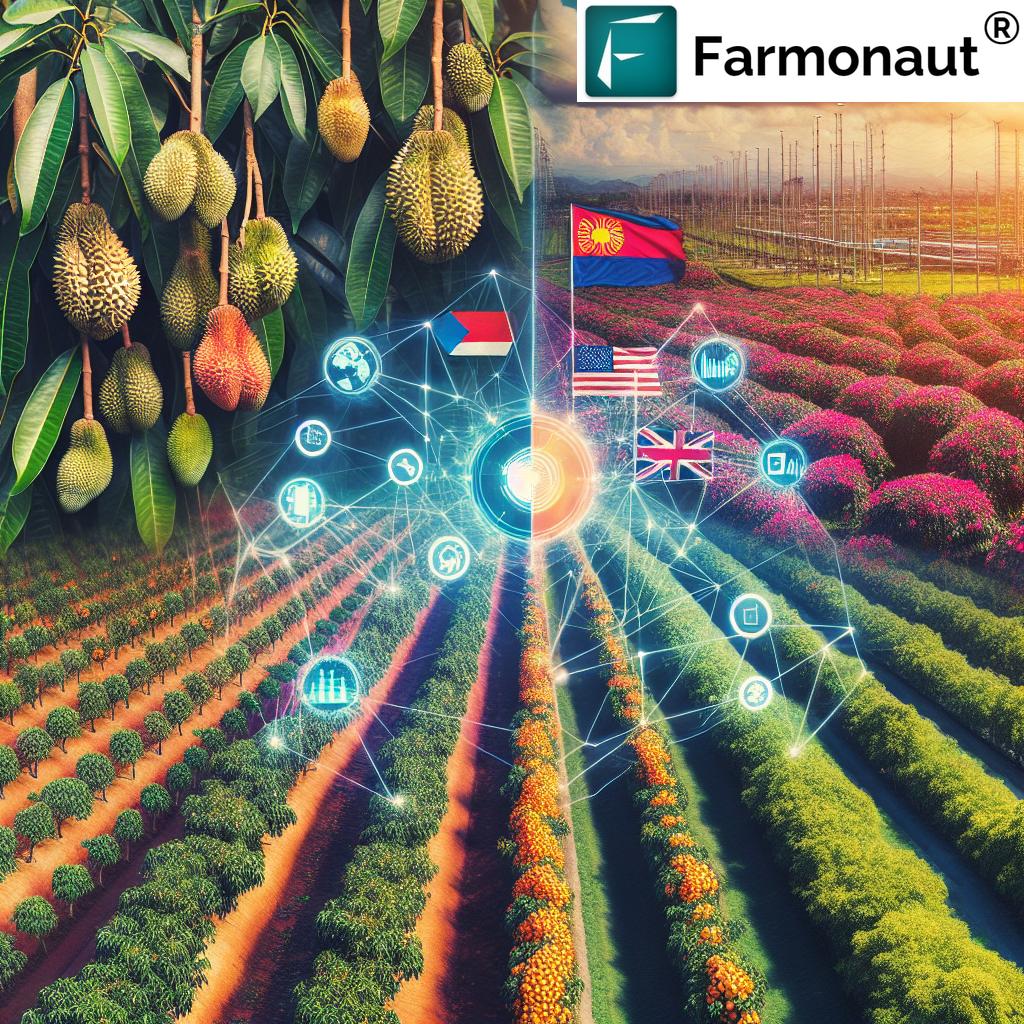
Digital Farming Technologies: Bridging Gaps in ASEAN Agriculture
The RCEP’s emphasis on technological cooperation has accelerated the adoption of digital farming technologies across Southeast Asia. These advancements are crucial in addressing the region’s agricultural challenges, such as climate change, resource scarcity, and food security.
Key digital farming technologies gaining traction include:
- Precision agriculture solutions
- IoT-based farm management systems
- AI-driven crop prediction models
- Drone technology for crop monitoring
At Farmonaut, we’re proud to contribute to this digital revolution through our API, which allows developers and businesses to integrate our satellite and weather data into their own systems, fostering innovation across the agricultural sector.
RCEP’s Impact on Agricultural Market Access
One of the most significant benefits of the RCEP is the improved agricultural market access for member countries. This has led to a surge in tropical fruit exports, particularly benefiting countries like Thailand, Vietnam, and Indonesia.
| Country | Tropical Fruits | Rice | Livestock | Agtech Adoption | Overall Agricultural Trade Growth |
|---|---|---|---|---|---|
| Thailand | +35% | +15% | +20% | +40% | +27.5% |
| Vietnam | +30% | +25% | +18% | +35% | +27% |
| Indonesia | +28% | +20% | +22% | +30% | +25% |
| ASEAN Average | +31% | +20% | +20% | +35% | +26.5% |
This table illustrates the estimated percentage increases in trade volume and market access due to RCEP across various agricultural sectors. The significant growth in agtech adoption underscores the region’s commitment to modernizing its agricultural practices.
Sustainable Agriculture Practices: A Priority Under RCEP
The RCEP not only focuses on boosting trade but also emphasizes sustainable agriculture practices. This aligns perfectly with Farmonaut’s mission to promote environmentally friendly farming methods through our advanced technologies.
Key sustainable practices promoted under RCEP include:
- Water-efficient irrigation systems
- Organic farming techniques
- Integrated pest management
- Soil conservation methods
Our satellite-based crop health monitoring and AI advisory systems support these practices by providing farmers with precise data on crop needs, reducing overuse of resources and minimizing environmental impact.
Enhancing Agricultural Supply Chain Management
The RCEP’s impact on agricultural supply chain management is profound. By reducing tariffs and streamlining customs procedures, the agreement has made it easier for agricultural products to move across borders efficiently.
At Farmonaut, we contribute to this efficiency through our blockchain-based traceability solutions. These tools ensure transparency and security at every stage of the agricultural supply chain, from farm to consumer. This not only meets the growing demand for product authenticity but also aligns with the RCEP’s goals of enhancing regional trade integrity.
Economic Growth and Job Creation
The RCEP’s potential to boost economic growth and create jobs in the agricultural sector is significant. According to a study by the Asian Development Bank, by 2030, RCEP member economies could see:
- A collective income boost of 0.6%
- An addition of approximately $245 billion a year to regional income
- The creation of 2.8 million jobs
These projections highlight the long-term economic impact of the partnership on the region, fostering an environment conducive to open trading practices and agricultural innovation.

The Role of Precision Agriculture in RCEP’s Success
Precision agriculture solutions play a crucial role in realizing the full potential of the RCEP for the agricultural sector. These technologies enable farmers to optimize resource use, increase yields, and produce higher quality crops that meet international standards.
Farmonaut’s precision agriculture offerings include:
- Satellite-based crop health analysis
- AI-driven yield prediction
- Personalized farm advisory services
- Weather forecasting and risk assessment
By leveraging these tools, farmers across the RCEP region can make data-driven decisions, enhancing their competitiveness in the global market.
For those interested in exploring our precision agriculture solutions, we invite you to check out our Android app and iOS app.
Overcoming Challenges: Protectionism and Trade Barriers
While the RCEP represents a significant step towards free trade, challenges remain. Rising protectionism globally threatens to fragment the international trading system and reduce economic efficiency. Experts warn that trade barriers can:
- Inflate prices for consumers
- Disrupt global supply chains
- Contribute to inflationary pressures
- Increase costs for businesses
The RCEP stands as a beacon against these trends, promoting open economies and international cooperation. As advocates for free trade and technological advancement in agriculture, we at Farmonaut support initiatives that break down barriers and foster global collaboration.
Future Outlook: RCEP and Agricultural Innovation
As we look to the future, the RCEP’s role in driving agricultural innovation becomes increasingly clear. The agreement not only facilitates trade but also encourages the exchange of knowledge and technology among member countries.
Key areas of future development include:
- Advanced crop breeding techniques
- Climate-resilient farming methods
- AI and machine learning in agriculture
- Blockchain for food traceability and safety
At Farmonaut, we’re committed to staying at the forefront of these innovations, continuously enhancing our platform to meet the evolving needs of farmers and agribusinesses in the RCEP region and beyond.
Conclusion: RCEP as a Catalyst for Agricultural Transformation
The Regional Comprehensive Economic Partnership represents a transformative force in Southeast Asian agriculture. By fostering free trade, encouraging technological adoption, and promoting sustainable practices, the RCEP is setting the stage for a new era of agricultural prosperity in the region.
As we at Farmonaut continue to innovate and provide cutting-edge solutions for the agricultural sector, we remain optimistic about the opportunities that the RCEP presents. Through our satellite-based technologies, AI-driven insights, and commitment to sustainability, we’re proud to play a part in this agricultural revolution.
The future of agriculture in Southeast Asia is bright, and with the RCEP as a foundation, we anticipate continued growth, innovation, and collaboration across the region’s agricultural landscape.
FAQ Section
Q: How does the RCEP benefit small-scale farmers in Southeast Asia?
A: The RCEP benefits small-scale farmers by providing access to larger markets, reducing trade barriers, and encouraging the adoption of advanced farming technologies. This can lead to increased income opportunities and improved agricultural practices.
Q: What role does technology play in the RCEP’s agricultural objectives?
A: Technology plays a crucial role in achieving the RCEP’s agricultural objectives by enhancing productivity, improving supply chain efficiency, and promoting sustainable farming practices. Smart farming technologies, like those offered by Farmonaut, are essential in realizing these goals.
Q: How does the RCEP address environmental concerns in agriculture?
A: The RCEP promotes sustainable agriculture practices and encourages the adoption of environmentally friendly farming methods. It also facilitates the exchange of green technologies and best practices among member countries.
Q: Can non-RCEP countries benefit from the agreement’s agricultural provisions?
A: While the primary benefits are for RCEP member countries, non-RCEP countries can indirectly benefit through increased trade opportunities with RCEP nations and by adopting similar agricultural innovations and practices.
Q: How does Farmonaut contribute to the goals of the RCEP in agriculture?
A: Farmonaut contributes to RCEP goals by providing advanced satellite-based farm management solutions that enhance productivity, promote sustainability, and improve agricultural supply chain management across the region.
For more information on how Farmonaut can help you leverage the opportunities presented by the RCEP, visit our web app or explore our API Developer Docs.




